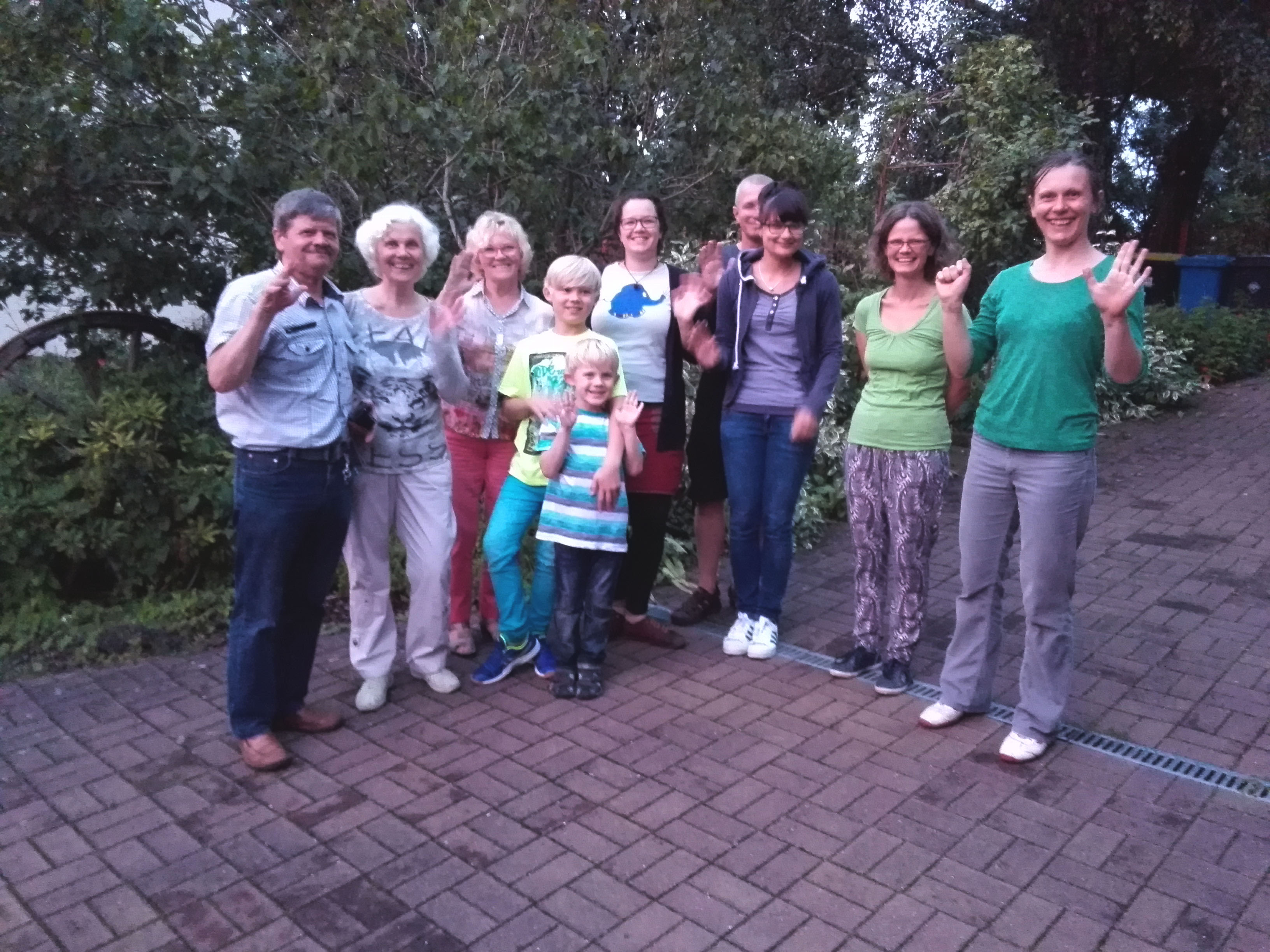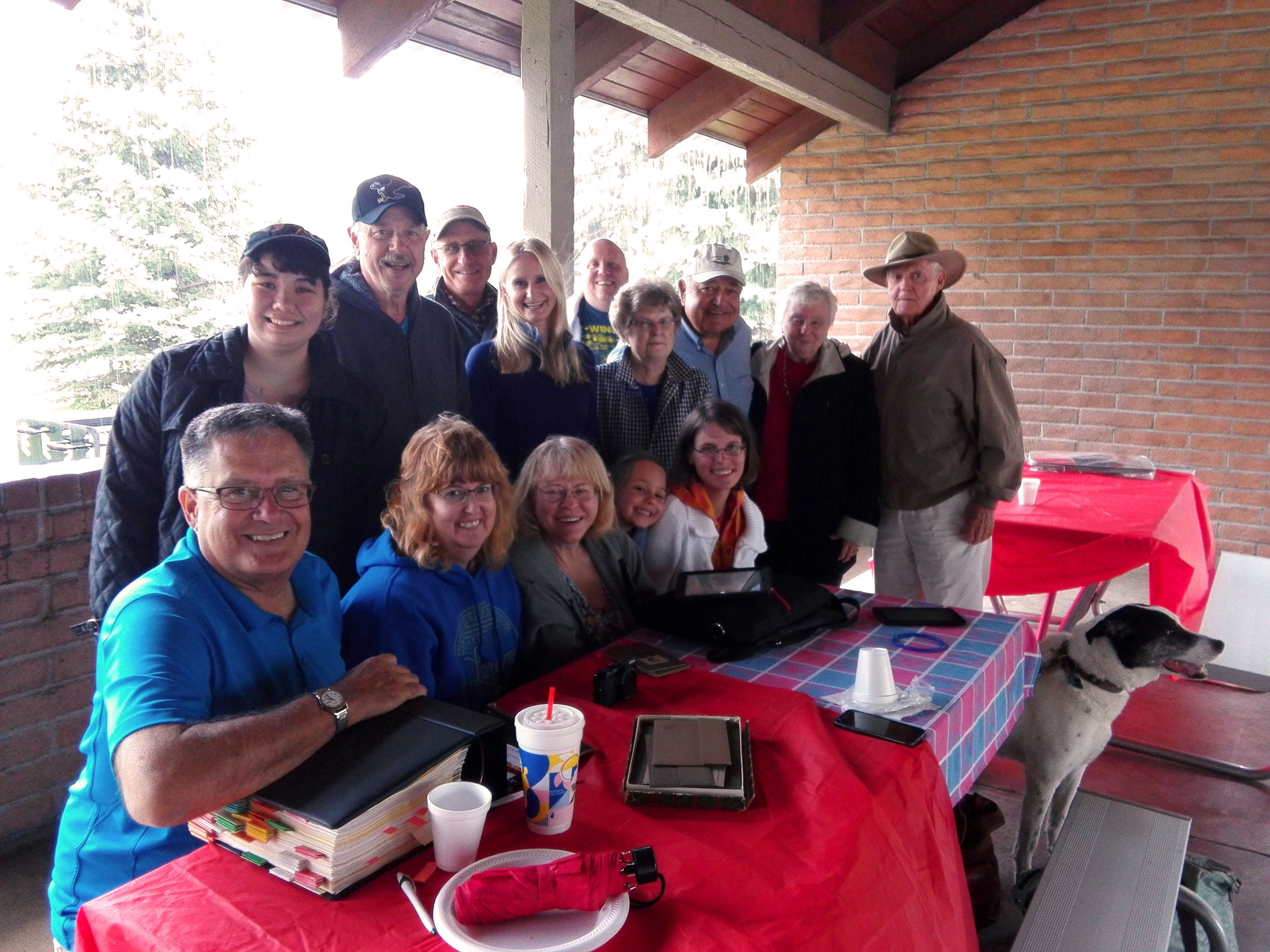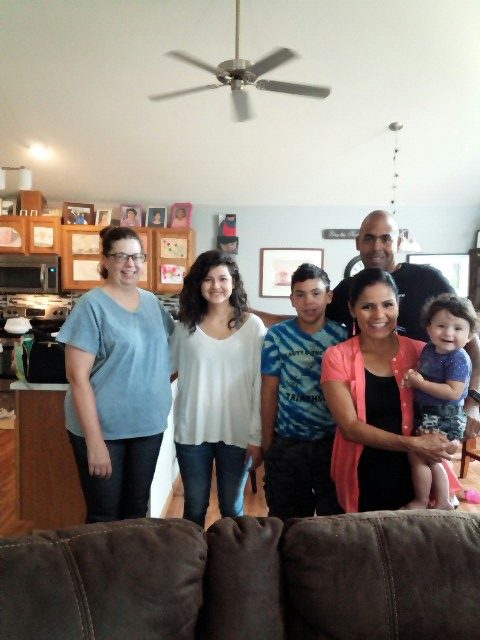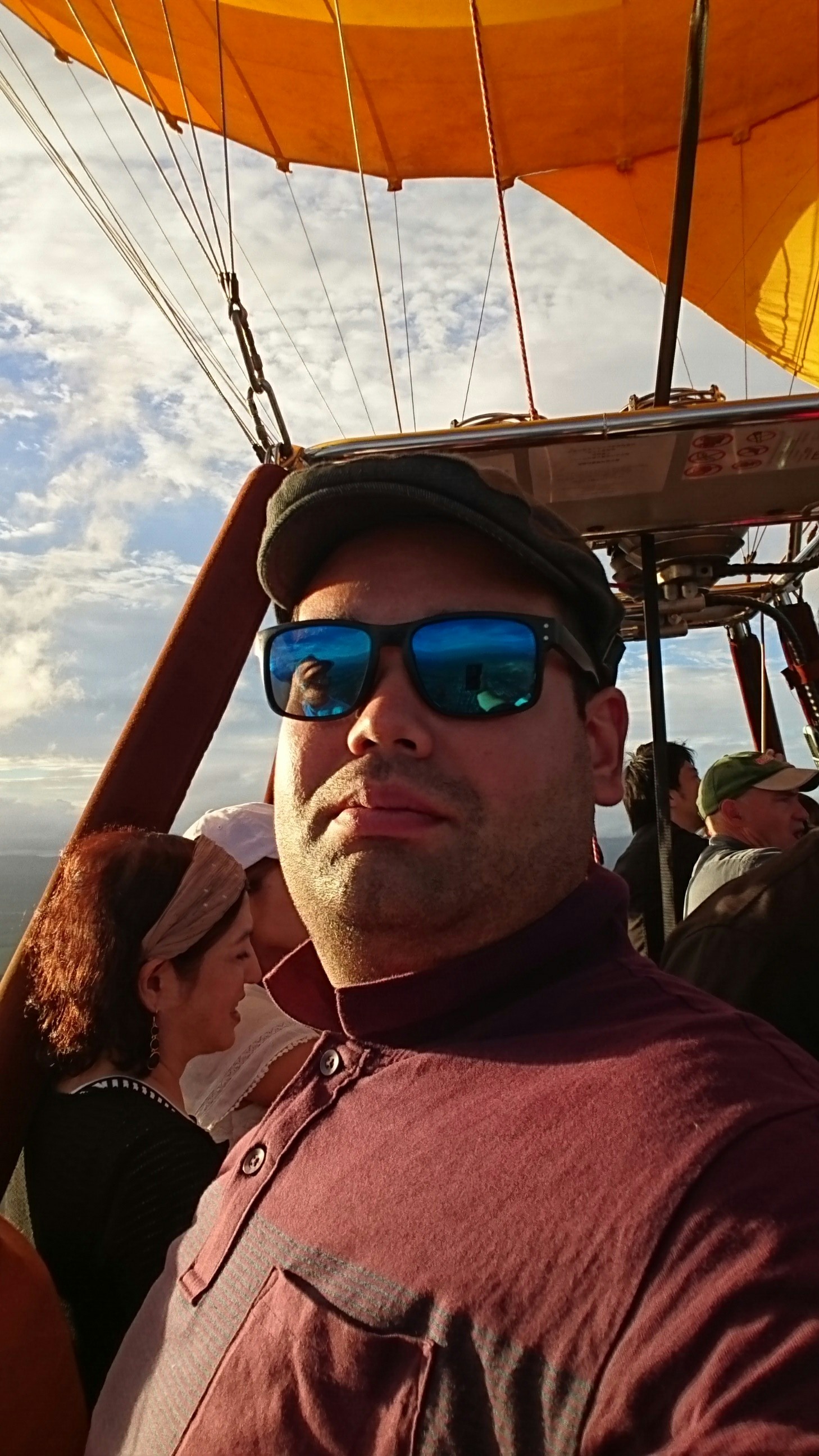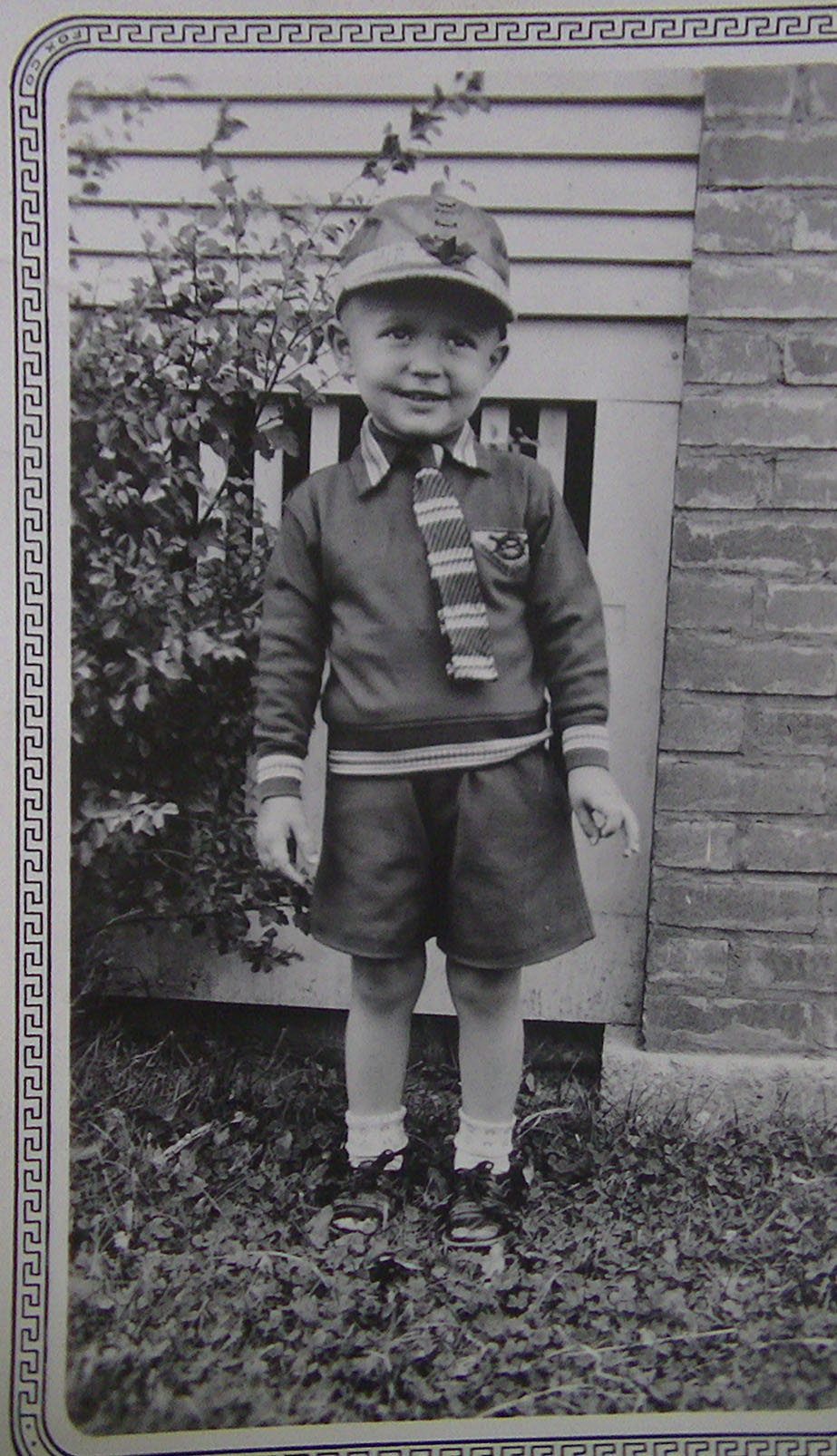Backe backe Kuchen, a traditional German nursery rhyme about baking a cake, unites distant cousins across the seas and generations.
Backe, backe Kuchen,
Der Bäcker hat gerufen!
Wer will gute Kuchen backen,
Der muss haben sieben Sachen:
Eier und Schmalz,
Butter und Salz,
Milch und Mehl,
Safran macht den Kuchen gel’! (gelb)
Schieb in den Ofen ‘rein.
(Morgen muss er fertig sein.)
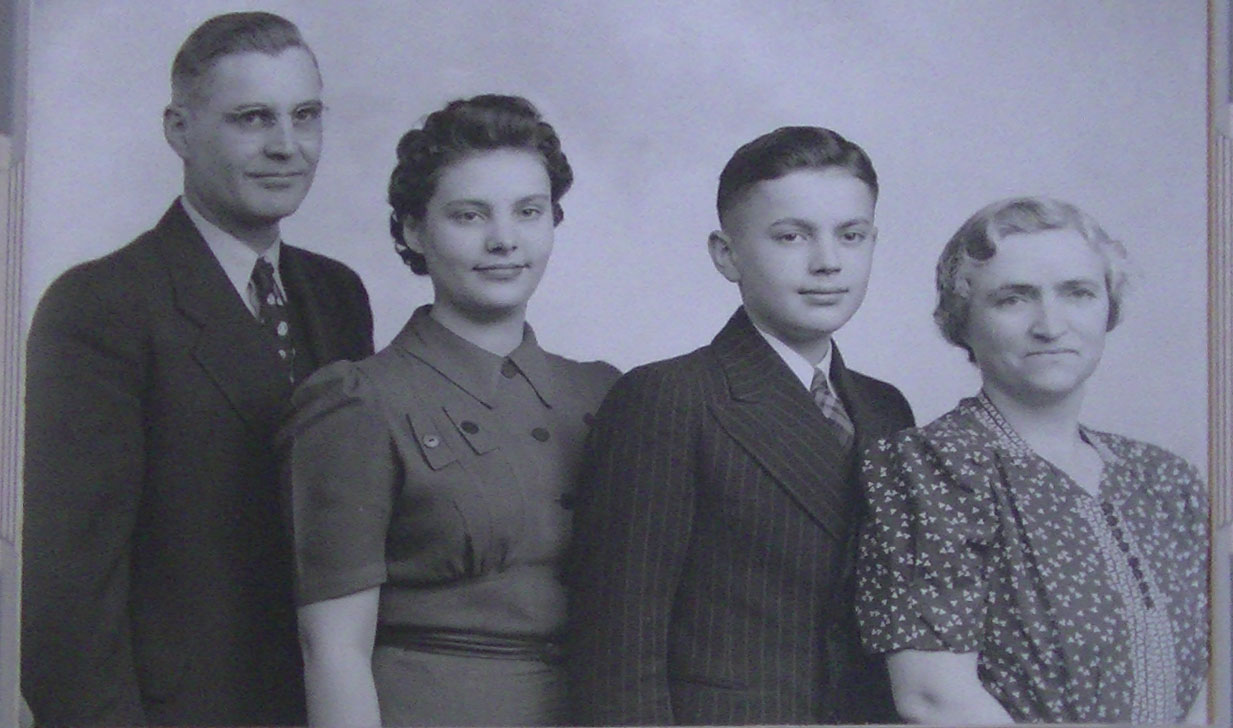 In the late 1920’s, early 1930’s, Don KLEMKE, a young boy in western Nebraska, learned this nursery rhyme from his father who was born in Scribner, Dodge County in eastern Nebraska and raised in a German-speaking community. The rhyme is said to originate around 1840.
In the late 1920’s, early 1930’s, Don KLEMKE, a young boy in western Nebraska, learned this nursery rhyme from his father who was born in Scribner, Dodge County in eastern Nebraska and raised in a German-speaking community. The rhyme is said to originate around 1840.
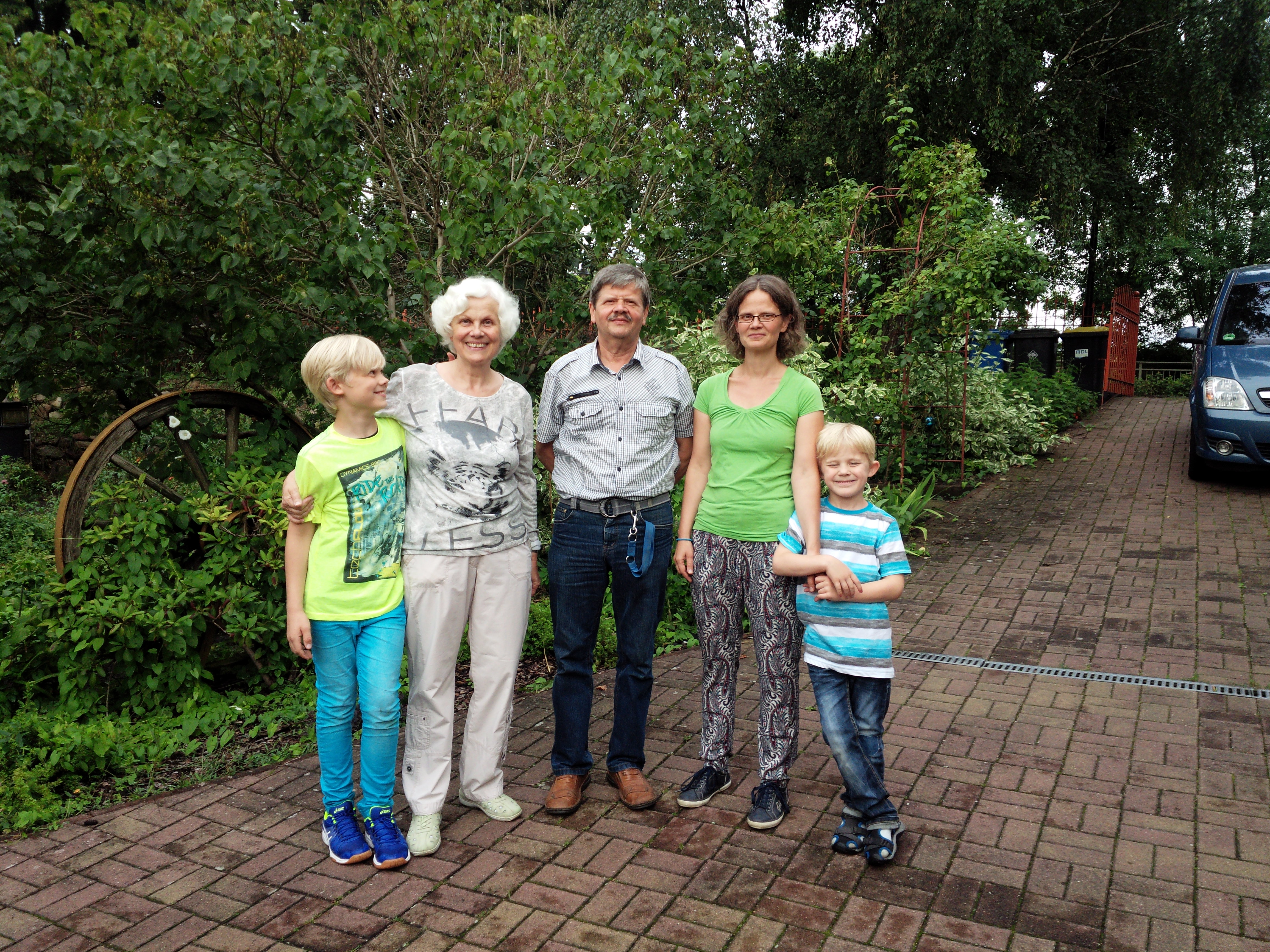 M. Constantin, 6, a little boy in Brandenburg, Germany, sang the same nursery rhyme on his mother’s lap in 2016.
M. Constantin, 6, a little boy in Brandenburg, Germany, sang the same nursery rhyme on his mother’s lap in 2016.
Don, 89, in the USA, and M. Constantin, 6, in Germany, are cousins.
Both descend from the common ancestors, Johann Friedrich KLEMKE (1782-1845) and Dorothee Louise WEGENER (1793-1860) who had four sons and one daughter. This was a family of weavers and tailors from the Prussian town of Zäckerick in Kreis Königsberg, in the Neumark area of East Brandenburg east of the Oder River. Their fourth son, August Ludwig KLEMKE (1826-1903), is Don’s great-grandfather. He left Zäckerick in 1880 with his second wife, Caroline HERSE (1829-1923) and their three sons, Friedrich Constantin (1863-1943), Emil Herman (1866-1954) and August Theodore(1872-1948). Marie RICHNOW (1824-1870)was the mother of Constantin and Emil).Johann and Dorothee’s third son, Karl August (1822-1900), is little M. Constantin’s great-great-great grandfather.
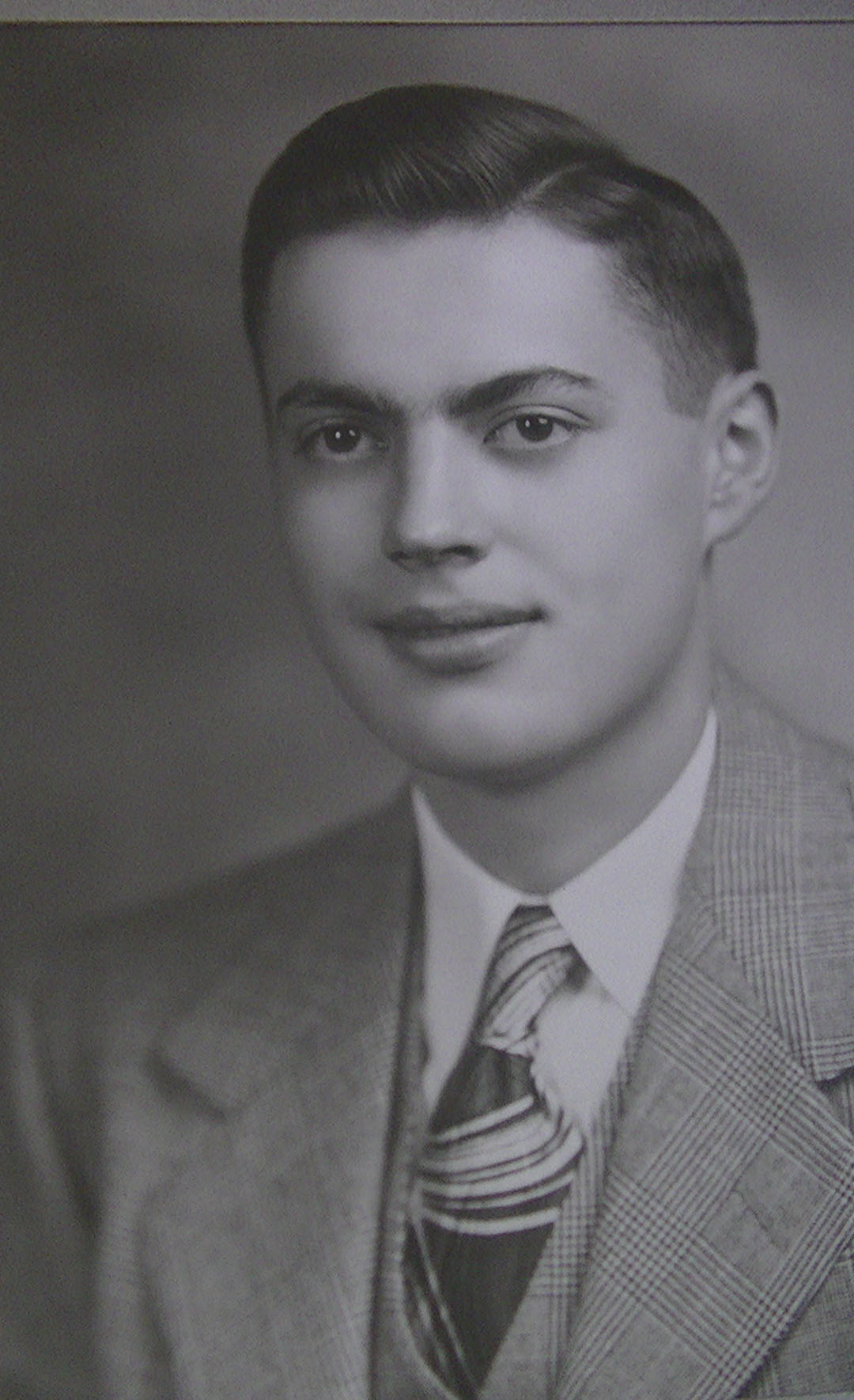 While Don grew up hearing his father speak German with siblings and cousins in Nebraska and Wyoming, his father, Erich Hugo (1896-1967) (who was completely bilingual) did not speak German to Don nor intentionally teach him German. Don did not learn German in school. Nursery rhymes like Backe, backe Kuchen and words heard at family gatherings in Nebraska or Wyoming or learned from his readings are the extent of his German knowledge.
While Don grew up hearing his father speak German with siblings and cousins in Nebraska and Wyoming, his father, Erich Hugo (1896-1967) (who was completely bilingual) did not speak German to Don nor intentionally teach him German. Don did not learn German in school. Nursery rhymes like Backe, backe Kuchen and words heard at family gatherings in Nebraska or Wyoming or learned from his readings are the extent of his German knowledge.
German communities in the USA often kept their German language in schools and in churches. During WWI and WWII, however, that changed and younger generations were encouraged to speak English and to integrate more and show their loyalty to their new country. Ties with families in their countries of origin became weaker in some cases.
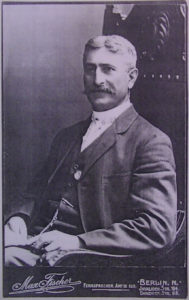 There remains one photo of Don’s great-uncle, Friedrich Constantin, Emil Herman’s older brother, during a visit to Berlin and presumably visiting the towns of Zäckerick and Alt Rüdnitz in 1911 at age 48. Having left Zäckerick at the age of 16 in 1880, Friedrich Constantin would have had cousins, aunts and uncles still living there to meet.
There remains one photo of Don’s great-uncle, Friedrich Constantin, Emil Herman’s older brother, during a visit to Berlin and presumably visiting the towns of Zäckerick and Alt Rüdnitz in 1911 at age 48. Having left Zäckerick at the age of 16 in 1880, Friedrich Constantin would have had cousins, aunts and uncles still living there to meet.
The last KLEMKE tailor, Heinrich, was living in Zäckerick until 1945.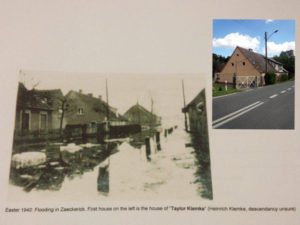
When the Soviet Union made its way toward Berlin and all Germans east of the Oder River fled west across the river and subsequently, the area east of the Oder River became western Poland with town names changing from German to Polish. The town of Zäckerick became Siekierki. Another town they had ties with, Alt Rüdnitz, became Stara Rudnica.
From 1945 until 1989, Germany was divided between West Germany and East Germany (GDR) where the connections were cut between the descendants of the 19th Century emigrants to other lands and their friends and family living behind the Berlin Wall. (Some families may have kept in touch somehow). Lives in both countries went on with children being born, attending school, parents working hard, birthdays, graduations, weddings and funerals. Travel between other Communist nations took place with cultural exchanges. Until 1961, when construction of the Berlin wall started, limited travel was possible between the two Berlins at least. That ceased upon completion.
In 1989, with the fall of the Berlin Wall and the opening up of communications with former East Germans, many people scrambled to find connections with long lost family. Genealogy groups sprang up and the Internet played a huge role in connecting people and finding ancestors. It was truly exciting.
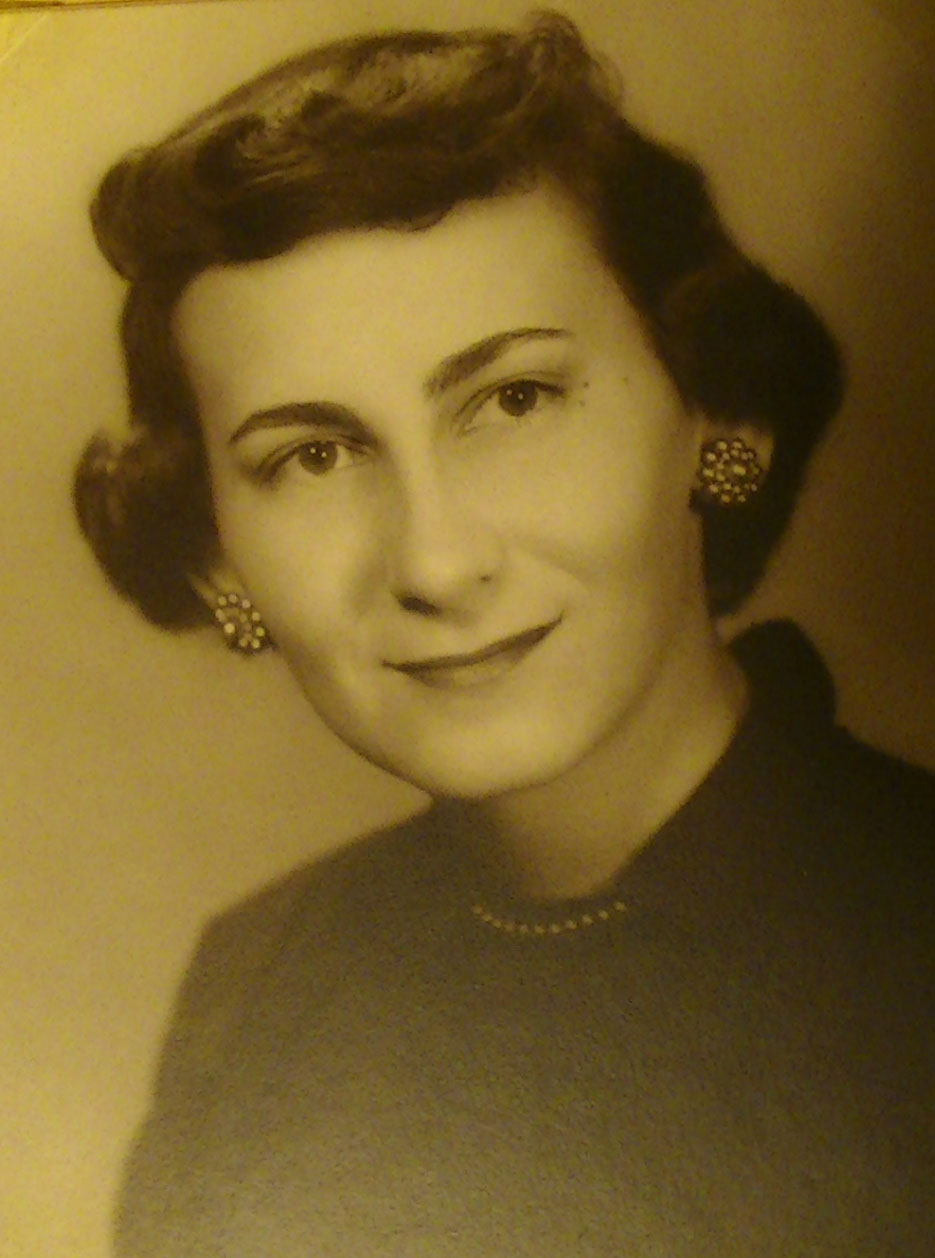 In 1998, Don and his wife Betty (also from the same town of Minatare, Nebraska), and their daughter, Amy (married and living in Japan), set off on a genealogical adventure. Gathering names and information, they gained new insight to the history of their own family as well as those of other immigrants and both countries.
In 1998, Don and his wife Betty (also from the same town of Minatare, Nebraska), and their daughter, Amy (married and living in Japan), set off on a genealogical adventure. Gathering names and information, they gained new insight to the history of their own family as well as those of other immigrants and both countries.
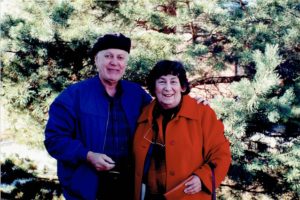 Don and Betty became genealogical detectives and went on a road trips to meet new cousins and see the towns in the USA they had read about. Much of their information came from descendants who had long been collecting letters, photos and data in nearby towns in the USA. Amy got much of her information from the German and US genealogical websites and through correspondence with knowledgeable researchers.
Don and Betty became genealogical detectives and went on a road trips to meet new cousins and see the towns in the USA they had read about. Much of their information came from descendants who had long been collecting letters, photos and data in nearby towns in the USA. Amy got much of her information from the German and US genealogical websites and through correspondence with knowledgeable researchers.
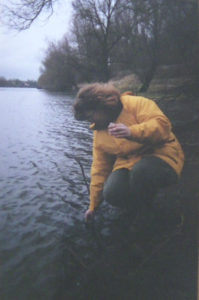 In November 1999, Amy had an opportunity to visit the Oder River and the former towns of Zäckerick and Alt Rüdnitz. She met Tobias and Ute KLEMKE for the first time in Berlin. (No direct connection has been found as of this writing) in Berlin. They drove across the Oder River where they held a small memorial ceremony and burned copies of photos of the ancestors from that area in the river near Alt Rüdnitz. It was very moving as Tobias’s family was also originally from areas east of the Oder.
In November 1999, Amy had an opportunity to visit the Oder River and the former towns of Zäckerick and Alt Rüdnitz. She met Tobias and Ute KLEMKE for the first time in Berlin. (No direct connection has been found as of this writing) in Berlin. They drove across the Oder River where they held a small memorial ceremony and burned copies of photos of the ancestors from that area in the river near Alt Rüdnitz. It was very moving as Tobias’s family was also originally from areas east of the Oder.
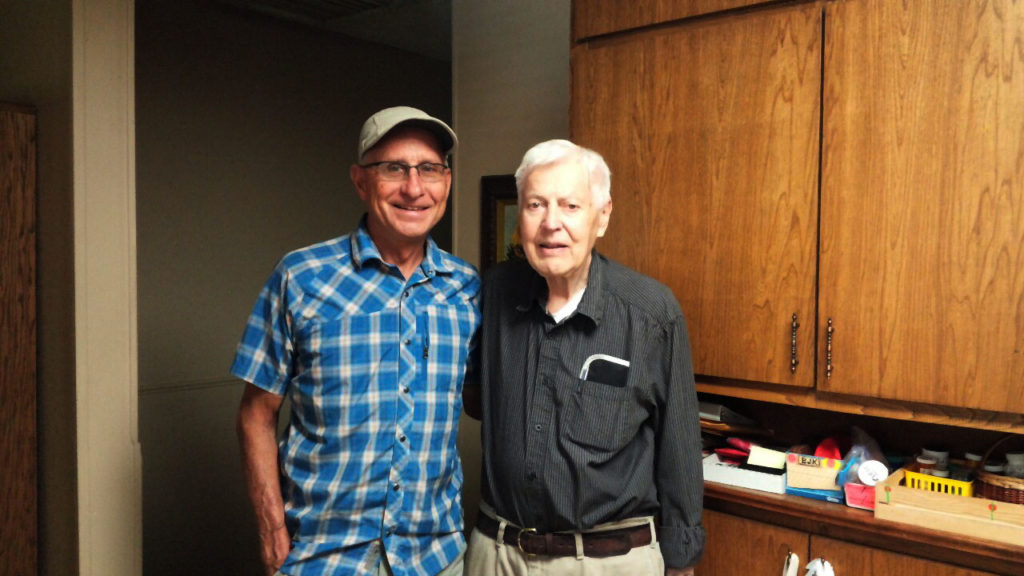 Jump to 2015, Amy (living in Japan) received an e-mail from Ron GLANDT of Denver, Colorado. He is a grandson of the youngest of the three immigrant brothers, August Theodore KLEMKE. Don and Ron are both great-grandsons of August Ludwig KLEMKE. They had not met each other at this point. They did finally meet in 2017.
Jump to 2015, Amy (living in Japan) received an e-mail from Ron GLANDT of Denver, Colorado. He is a grandson of the youngest of the three immigrant brothers, August Theodore KLEMKE. Don and Ron are both great-grandsons of August Ludwig KLEMKE. They had not met each other at this point. They did finally meet in 2017.
Having grown up in Wyoming with many cousins from this line (and his paternal line) Ron, was planning a September trip to Bad Freienwalde in Brandenburg, along the Oder River. This is the largest town before crossing the Oder River into Poland. Many small towns dot the area.
Ron succeeded in connecting with our line. Finally, a connection!
Many of us in the US now have known living cousins in the eastern region of Märkische-Oderland in Brandenburg!
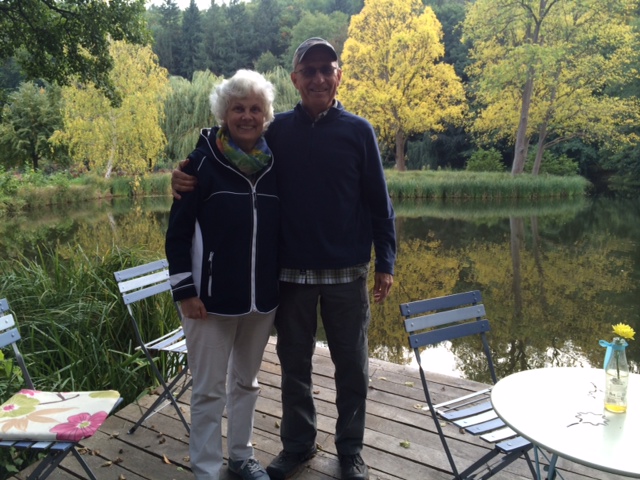 August Ludwig KLEMKE’s great-grandson, Ron, met Karl August’s great-granddaughter, Anita! She is little M. Constantin’s grandmother.
August Ludwig KLEMKE’s great-grandson, Ron, met Karl August’s great-granddaughter, Anita! She is little M. Constantin’s grandmother.
Ron visited again in September 2016.
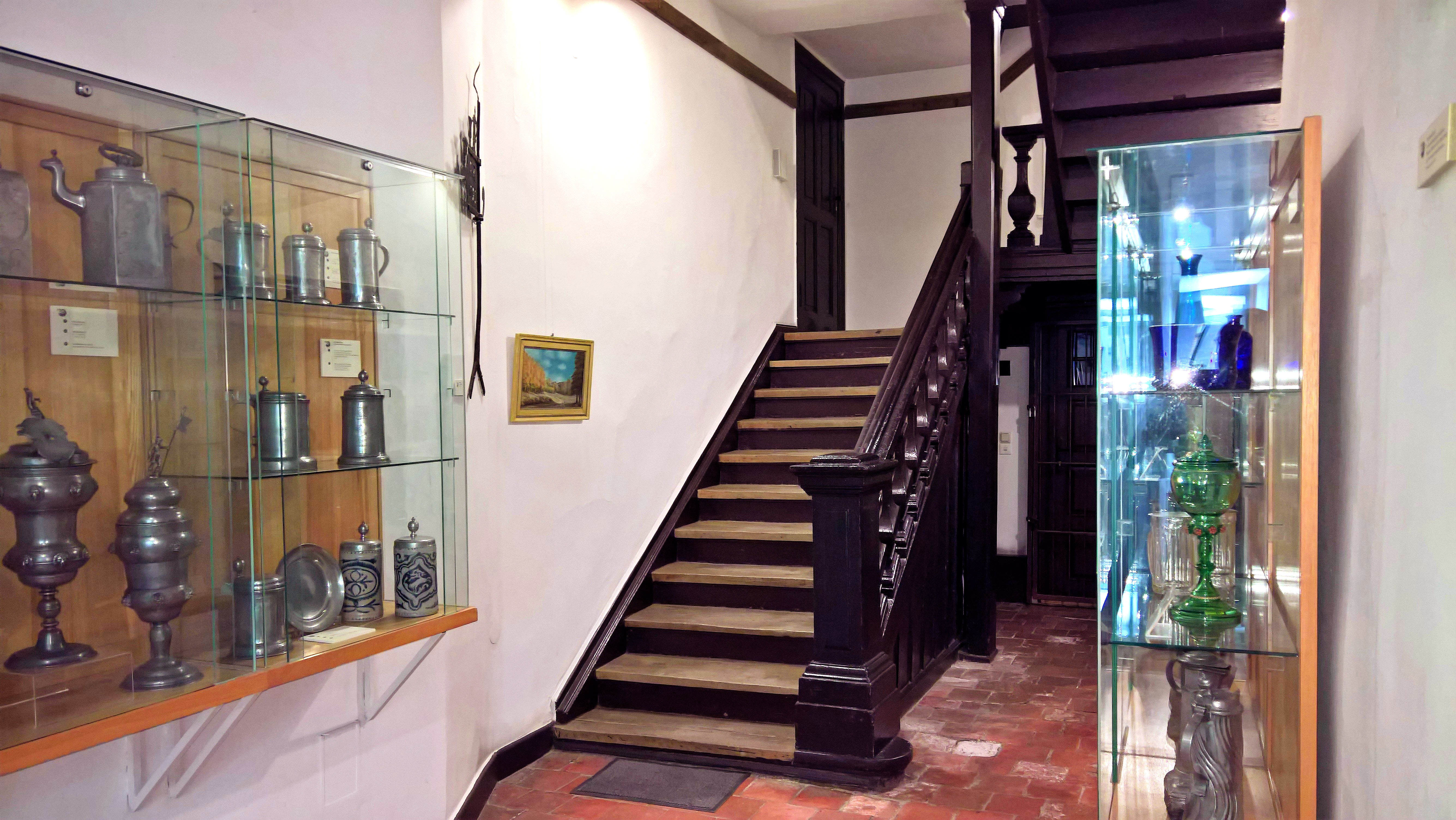 In 2016, Amy asked Don and Betty to mail an oil painting by Don’s grandfather Emil Herman to a friend in Schwedt/Oder. He had given it to them as a wedding present in 1953 shortly before his death. Amy and her daughter Mina, left Japan in August to meet Dr. SCHMOOK and deliver Emil Herman’s painting to the Oderland Museum in Bad Freienwalde and to meet these new cousins in Germany. It was very exciting. His painting hangs there permanently.
In 2016, Amy asked Don and Betty to mail an oil painting by Don’s grandfather Emil Herman to a friend in Schwedt/Oder. He had given it to them as a wedding present in 1953 shortly before his death. Amy and her daughter Mina, left Japan in August to meet Dr. SCHMOOK and deliver Emil Herman’s painting to the Oderland Museum in Bad Freienwalde and to meet these new cousins in Germany. It was very exciting. His painting hangs there permanently.
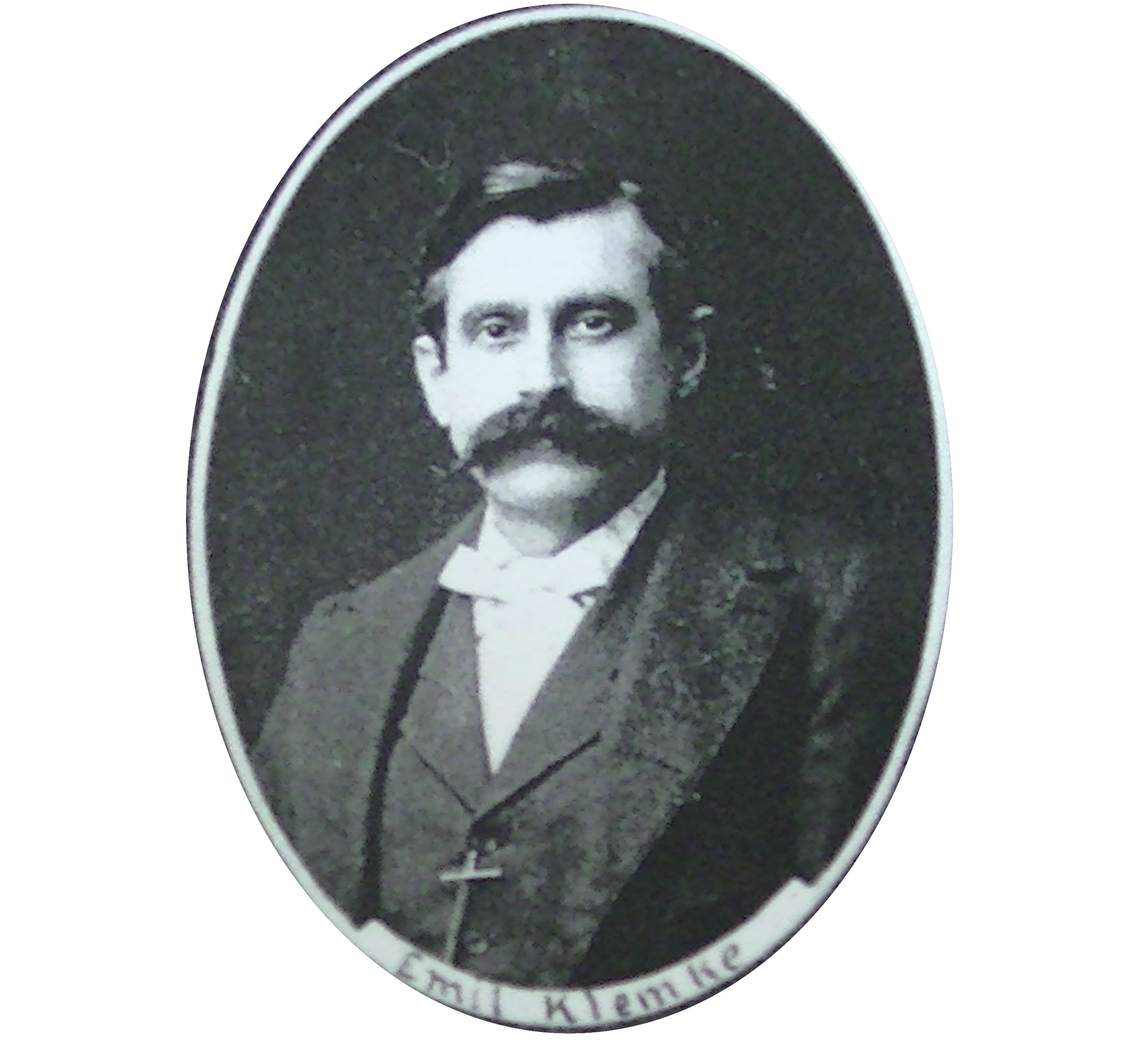
This is where we come full circle in this story. The timing was just right to meet many of the descendants at the home of Anita and her husband Kurt.
During a family dinner in Bad Freienwalde in 2016, we showed the video of Don reciting Backe backe Kuchen as he remembered it upon his father’s knee as a small boy in Nebraska. Don’s eldest son, Sam had recorded it in Denver and sent it to Amy in Japan. Little M. Constantin, 6, watched the video intently in Germany and crawled onto his mother, Peggy’s lap to sing the song which appears in the video. Peggy is Anita’s daughter.
In 2017, Amy and Mina were able to visit the USA in August where we met many KLEMKE descendants in Wyoming at the family reunion that has been held annually for about 100 years. This is the first time Emil Herman’s descendants attended since Don and Betty attended in the late 1990’s. We hope it continues for many years to come.
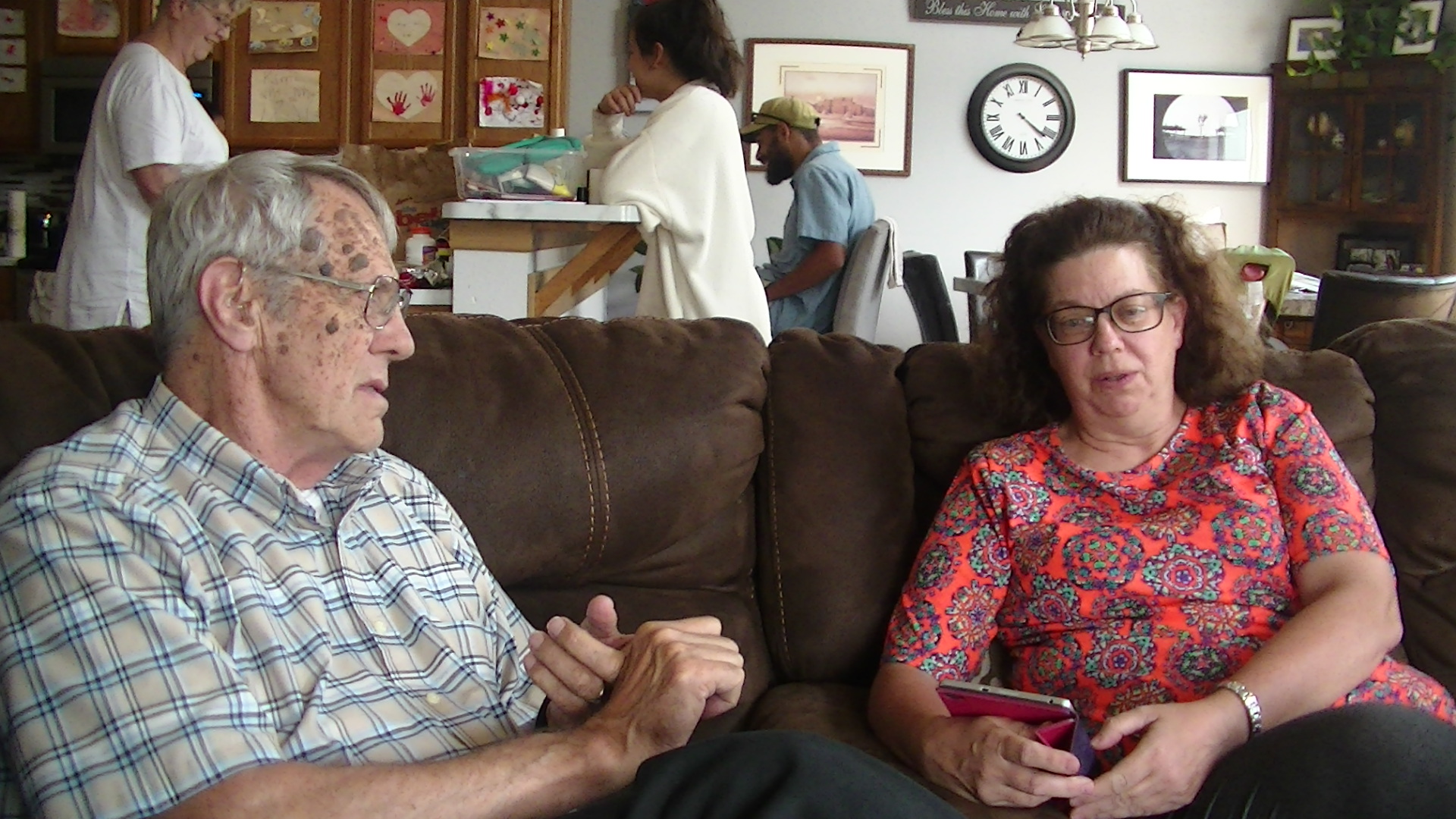 We also visited cousins in South Dakota, Nebraska and Colorado. Some we had met after a long separation and others we had met for the first time and enjoyed getting acquainted.
We also visited cousins in South Dakota, Nebraska and Colorado. Some we had met after a long separation and others we had met for the first time and enjoyed getting acquainted.
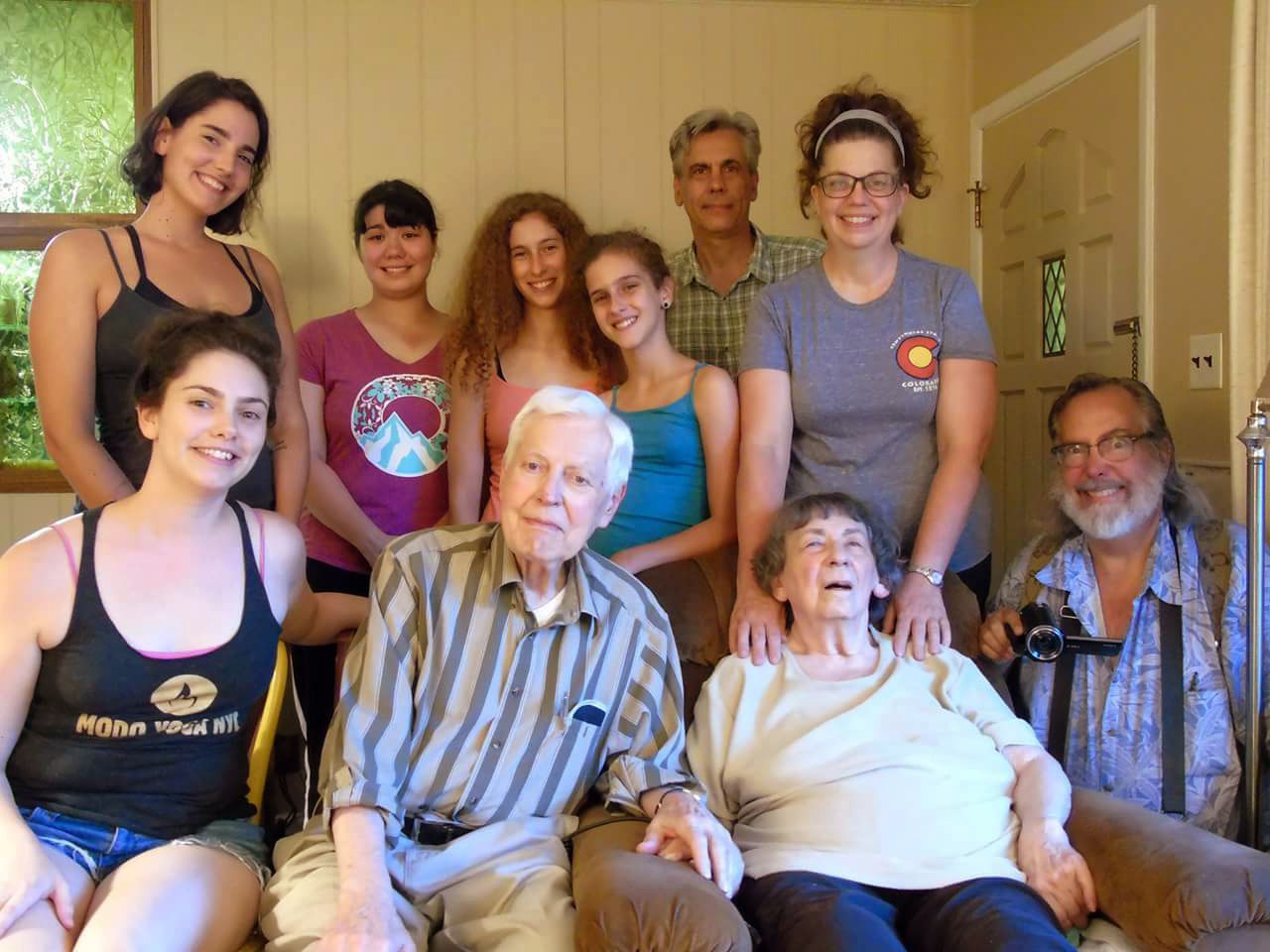 Knowing that the Solar Eclipse would pass through the area where Don and Betty were born and raised, their second son, Joe, had arranged a second reunion for children and grandchildren of Don and Betty to gather in the prairie town of Minatare where they camped at Lake Minatare.
Knowing that the Solar Eclipse would pass through the area where Don and Betty were born and raised, their second son, Joe, had arranged a second reunion for children and grandchildren of Don and Betty to gather in the prairie town of Minatare where they camped at Lake Minatare.
While in Denver, we showed Don the video of M. Constantin watching his recitation, and of Constantin singing it with his mother, Peggy, just as Don had done 89 years before with his father, Erich Hugo.
Don was impressed and said,
“I did not realize it was a song. That’s precious.”
Don and M. Constantin will never meet in person but through this video the little German nursery rhyme Backe, backe Kuchen learned upon the knee of their parents has united a little boy with his cousin in a far away land that is much closer now.
For further reading, see:
